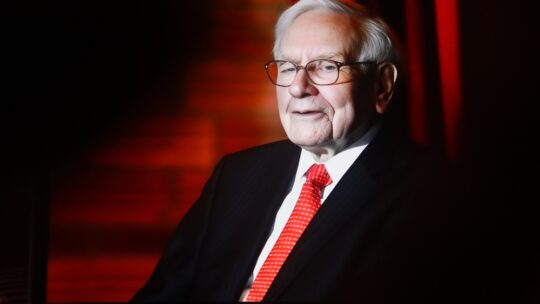
As Warren Buffett steps down from his storied role at Berkshire Hathaway, the world is rightly fixated on his legacy of value investing, corporate stewardship and homespun wisdom. But there’s a less obvious takeaway that top PR firms and communications professionals should not overlook.
Buffett, long considered the "Oracle of Omaha," mastered not just capital allocation, but the art of strategic storytelling. His annual shareholder letters were media events. His public interviews, deliberately sparse, wielded the impact of a presidential address. And despite commanding a trillion-dollar empire, he retained an unfiltered, authentic voice. For public relations leaders seeking relevance in an AI-saturated landscape, Buffett’s retirement offers a powerful case study in how to build and protect trust at scale.
Clarity Over Complexity
Top PR firms often confuse complexity with credibility. Not Buffett. His genius wasn’t just picking winning companies—it was explaining them in plain English. In the high-stakes realm of investor relations, where jargon often reigns supreme, Buffett preferred metaphors about hamburgers and snowballs. That choice wasn’t accidental—it was strategic.
Communications professionals should take note: Simplifying the message is not dumbing it down. It’s making it memorable. In an era when attention spans are fleeting, the firms that will rise to the top of the “best PR agencies” lists are those who distill narratives to their essence without sacrificing depth.
Earned Media Is Still King
Warren Buffett rarely invested in traditional advertising for Berkshire Hathaway. Instead, he relied on results and a carefully cultivated public persona maintained by tier-one media outlets. His annual shareholder meetings, often dubbed the "Woodstock for Capitalists," became major media events, attracting tens of thousands of attendees and extensive coverage. These gatherings featured marathon Q&A sessions, where Buffett, alongside his top executives, addressed questions from shareholders.
Notably, CNBC anchor Becky Quick played a pivotal role in this weekend’s past gathering, as she has with many Berkshire shareholder meetings. Curating and moderating questions submitted by shareholders, Quick also grilled Buffett on his firm’s large cash position.
This approach underscores the enduring power of earned media. In an era dominated by influencer marketing and AI-generated content, authentic third-party validation has become increasingly valuable. Buffett's strategy highlights that the most trusted voices are often those not on the payroll. Top PR firms should take note: investing in earned media strategies still yields significant dividends in building and maintaining trust.
And let’s be honest, which sources of information are AI training algorithms prioritizing?
Succession Is Strategy
When Buffett announced Greg Abel as his successor, he did so subtly. The communications around the transition were minimalistic—yet they controlled the narrative. There were no leaks. No grandstanding. Just a quiet confidence that spoke volumes.
Top PR firms should consider succession planning not just as a client concern, but as part of their own strategic DNA. Crisis-proofing reputations means having clear internal communications frameworks, leadership visibility strategies, and contingency playbooks long before they’re needed.
The Future of Top PR Firms Is Value-Driven
Warren Buffett’s communications strategy mirrors his investment thesis. Rather than chasing hype, he stays principled, opts for transparency and builds for the long-haul.
In a media ecosystem built for volatility, Buffett’s quiet consistency may seem like an anachronism. But in truth, it’s a roadmap. The most influential communicators of tomorrow won’t be the loudest—they’ll be the ones who, like Buffett, have something meaningful to say, and the discipline to say it well.
Davis Richardson is the Founder and President of Paradox Public Relations.
